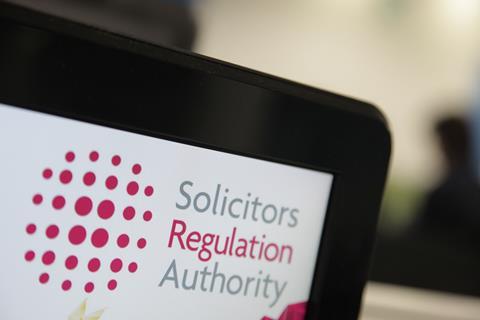The Solicitors Regulation Authority today set out in granular detail what will or may constitute sexual misconduct by solicitors, after a surge of complaints in the past five years.
The regulator has published a comprehensive guide to behaviour that it would deem to be a matter for investigation and what aggravating factors would lead to a prosecution. The guidance gives directions on issues such as workplace comments, consent, vulnerability and seniority of complainants, alcohol consumption and instances where a complainant has been touched.
Paul Philip, chief executive, said: ‘We take reports of sexual misconduct seriously. These can be sensitive and difficult issues and we want to be clear about our expectations, not least for firms, as people often come to us because they are dissatisfied with the way their firm has dealt with their concerns.’
Since 2018 there have been 251 reports made to the regulator about alleged sexual misconduct at law firms, compared with 30 in the preceding five years. The SRA has 117 related ongoing investigations into potential breaches of its code of conduct.
The issue of sexual misconduct in the workplace – and how and whether the SRA should treat it as a regulatory matter – has caused a headache for the watchdog for a number of years, culminating in the failed prosecution of Ryan Beckwith in 2020. The Solicitors Disciplinary Tribunal found that Beckwith failed to act with integrity and undermined public trust after spending the night with a colleague. These findings were overturned by the High Court on appeal, with the ruling stating that ‘regulators will do well to recognise that it is all too easy to be dogmatic without knowing it’. Beckwith was cleared of all wrongdoing.
But the same ruling said that, in general, there were cases which required the SRA or tribunal to adjudicate on a professional’s private life – and the regulator believes this is an endorsement of its policy to investigate conduct that does not directly relate to legal work.

The new guidance says that while it is more likely that alleged wrongdoing in the workplace is more likely to affect an individual’s integrity or trust in the profession, it will investigate behaviour outside the work environment.
The guidance notes: ‘Sexual misconduct might not directly relate to an individual’s work as a lawyer or the work being done by a firm but have a connection to practice, their role, and their position in relation to the recipient of the behaviour.’
Philip added today: ‘The Beckwith judgment made it clear that it was “common sense” that upholding our principles of acting with integrity could reach into a solicitor’s private life.’
Commenting on specifics, the guidance says that someone being overly friendly and putting an arm around someone’s waist ‘might be objectionable to an individual but is not necessarily serious enough for us to take regulatory action’, whereas intentionally touching a bottom or breast would be considered more serious.
Examples of aggravating factors would include any threat not to report the conduct; any suggestion that junior staff wear certain clothes; the use of future work prospects as an inducement or threat; giving sexualised gifts such as sex toys; and comments about people’s sex lives.
The guidance also states that an aggravating issue could include ‘intentionally plying someone with extreme or significant quantities of alcohol which might suggest it is being done to lower both physical and emotional resistance’. Being drunk, it is noted, is never a defence to an allegation of sexual misconduct.
The SRA also distinguishes between what it describes as ‘flirting, banter or even complimentary’ comments and more distasteful sexualised words spoken in the workplace. Comments such as ‘You are sexy’ or ‘I find you attractive’ will be looked at with regard to whether they were ‘abusive or simply awkward, clumsy and unwise’.
Away from the office on a work night out, for example, the link between the two settings is not broken, and the ‘working relationship remains the origin and the context – even if the misconduct itself takes place in other premises’.


























